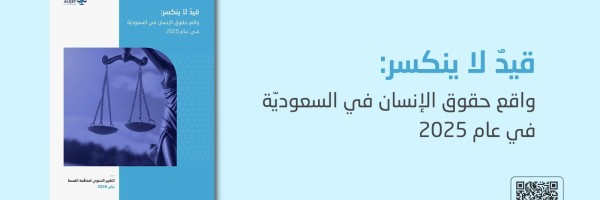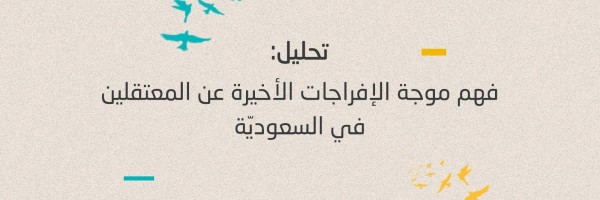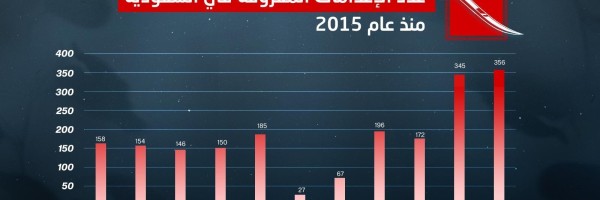The Saudi-American filmmaker and creator of hit series Masameer, Abdulaziz al-Muzaini, has called out the Saudi authorities for secretly prosecuting and sentencing him to 13 years in prison to be followed by a 30-year travel ban. His conviction is allegedly for “supporting terrorism and homosexuality” as well as other charges based on social media posts dating back more than a decade.
The official case against him was first revealed last week in an 18-minute video addressed to Crown Prince Mohammed bin Salman, in which al-Muzaini described the repressive actions currently being taken against him as one of the kingdom’s leading creative talents. Within hours of publishing the video on 26 June 2024, al-Muzaini deleted it from YouTube and X, posted positive messages about the crown prince and the head of the General Authority of Media Regulation, and edited his X profile to read “A proud Saudi” instead of “A proud Saudi-American”.
The undersigned organisations note with concern the repressive measures by the Saudi authorities against popular content creators, including intensive trolling over old social media posts as well as arbitrary arrests and detentions. Those targeted to date include Hatem al-Najjar, the presenter of popular podcast Muraba (Square) on the Thmanyah channel and others involved in its production, such as Mohammed al-Hajji, as well as a podcaster and self-styled relationship counsellor Yasser al-Huzaimi.
In his swiftly deleted video, which he said he recorded from his home in Riyadh, al-Muzaini disclosed that the week before he was forced to shut down his production company Myrkott and terminate his staff’s contracts after a Saudi court convicted him. He said he was initially sentenced by Saudi Arabia’s terrorism court, the Specialised Criminal Court (SCC), to 13 years in prison plus a 13-year travel ban, despite the Public Prosecution initially seeking 25 years in prison plus a 25-year travel ban. Upon appeal, the SCC Court of Appeal increased the sentence to include a 30-year travel ban. Al-Muzaini said he was waiting for the Supreme Court to give a final ruling on the case.
Myrkott has more than 2.5 million subscribers on YouTube and millions of views for its many cartoon episodes, dating back to 2011. The official case against al-Muzainiwas brought soon after Masameer was first released on Netflix in July 2021.
Among the charges brought against him, al-Muzaini and his company are alleged through Masameer to have “sponsored and supported terrorism and homosexuality” and that the language used in the animated comedy series includes slurs and “insults”. Other charges were based on social media posts dating back more than a decade.
The Thmanyah team has similarly been targeted by the authorities. Pro-government social media accounts have been reporting its online content to State Security, inviting them to arrest and punish its creators. Muraba presenter Hatem al-Najjar was arrested in January 2024 after a campaign using the hashtag “Arrest_Hatem_Alnajjar”, and despite posting an apology to the Saudi authorities, he remains in detention. In addition, Mohammed al-Hajji, a public health expert with a PhD from the United States, was briefly detained in August 2023 reportedly for perceived criticism of the crown prince and support for women’s rights.
Thmanyah is one of the most widely followed podcast series in the worldwith more than 3.6 million subscribers on YouTube and had one of the most watched podcast episodes in the world in 2023, with 107 million views. The episode was an interview with Yasser al-Huzaimi, who afterwards came under attack by an online campaign calling him a traitor and a member of the Muslim Brotherhood. In response, al-Huzaimi created a new account on X to refute these accusations and defend the Saudi government, saying that “all these political/ideological groups and parties are wrong” and that he was loyal to the Saudi government.
Earlier in 2023, social media influencer Mansour al-Raqiba was sentenced to 27 years in prison, according to court documents, over a secretly recorded video of him criticising Vision 2030, Mohammed bin Salman’s blueprint for diversifying the Saudi economy. Al-Raqiba has more than 2.3 million followers on Snapchat and thousands more on other social media platforms.
The undersigned organisations have documented previously the Saudi authorities’ suppression of free speech of all kinds, both on- and offline, the restrictive Press and Publications Law, and the draconian Anti-Cybercrime Law that is routinely used to target peaceful rights activists and other innocent users of social media. Article 6 of the Anti-Cybercrime Law criminalises the “production, preparation, transmission, or storage of material impinging on public order, religious values, public morals, and privacy, through the information network or computers” and is routinely weaponized to suppress free speech.
Since ending a 35-year ban on cinemas in 2018, the Saudi government has nurtured ambitions to create a domestic film and media industry. The kingdom’s first cinema guild, the Film Association, was announced in December 2023, with a remit to “establish labour rights for cinema professionals”. Yet far from recognising filmmakers’ rights, the authorities remain determined to control content and stifle some of the kingdom’s best creative talent. Given the kingdom’s lack of transparency, the secrecy of the tightly controlled judicial process, and the risks of harsh penalties and retaliatory measures for speaking out, there have undoubtedly been more cases of this kind than we have been able to document.
Saudi Arabia’s creative industries will not thrive until the authorities recognise and fully respect the human rights of all its citizens to free speech, freedom of opinion and expression, freedom from arbitrary arrest and detention, and just, open and independent judicial proceedings.
The undersigned organisations call on the Saudi authorities to end their campaigns of defamation and harassment against all those peacefully expressing views that diverge from the official government line or carrying out legitimate work in journalism, broadcasting and online media; and to end their practice of digging out years-old social media posts with which to attack people they want to silence. We also demand an end to arbitrary arrests and prosecutions carried out in secret, and for all cases where criminal charges are brought to be conducted openly and with observers able to attend court hearings.
The undersigned organisations call for the release of all those unjustly imprisoned in Saudi Arabia for their opinions and beliefs, and for an end to the imposition of travel bans, which are illegal in both international and domestic Saudi law.
Signatories:
- ALQST for Human Rights
- Committee to Protect Journalists (CPJ)
- MENA Rights Group
- Middle East Democracy Center (MEDC)
- PEN America




